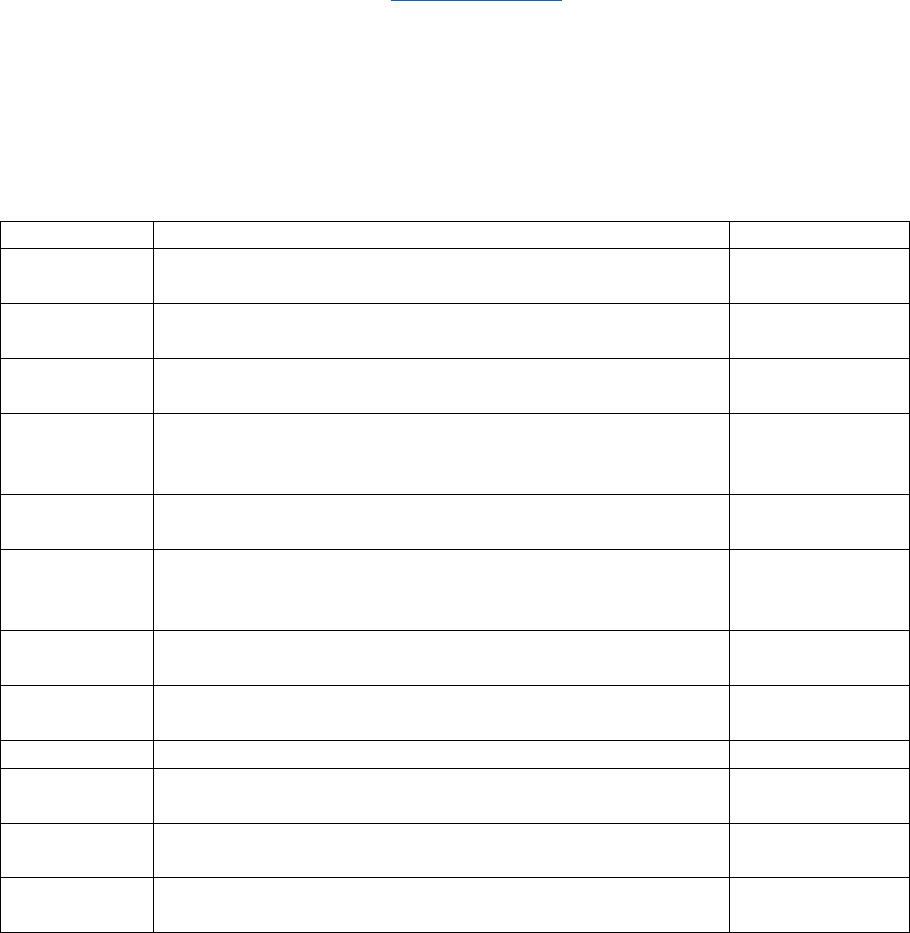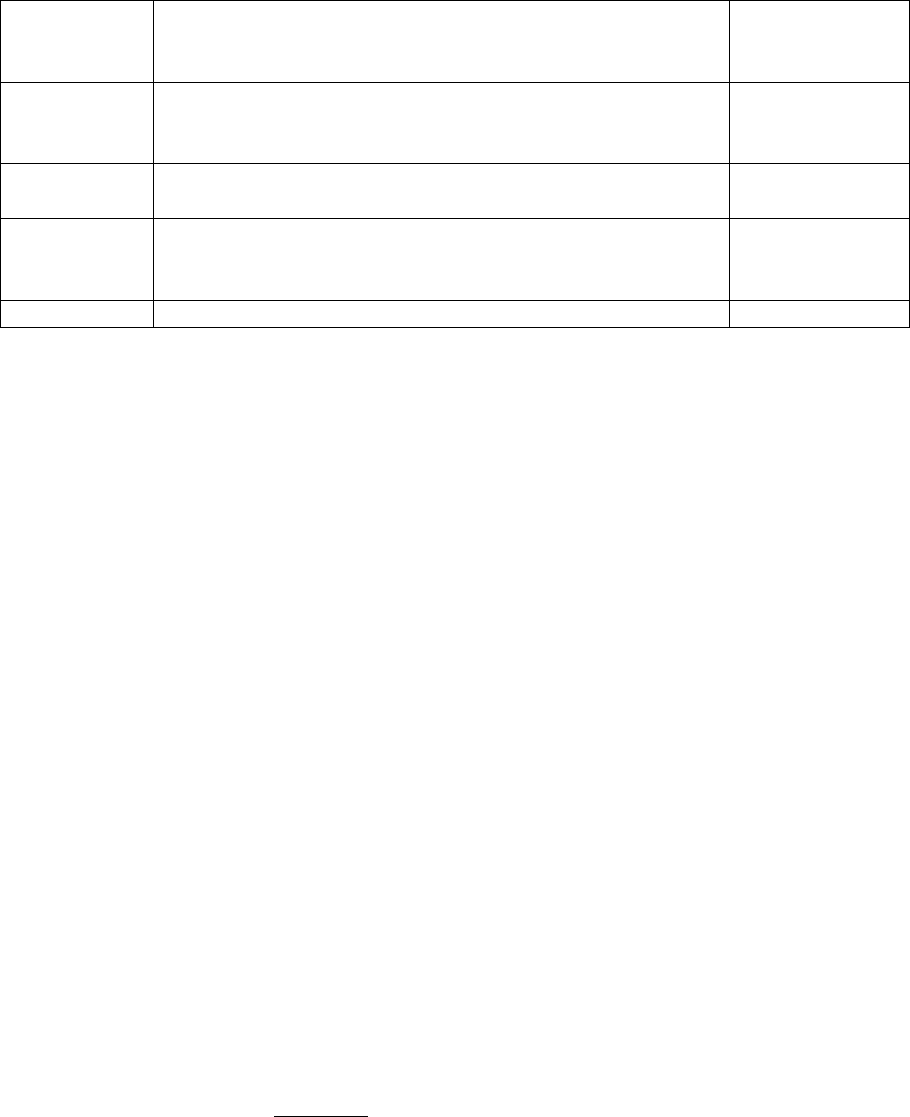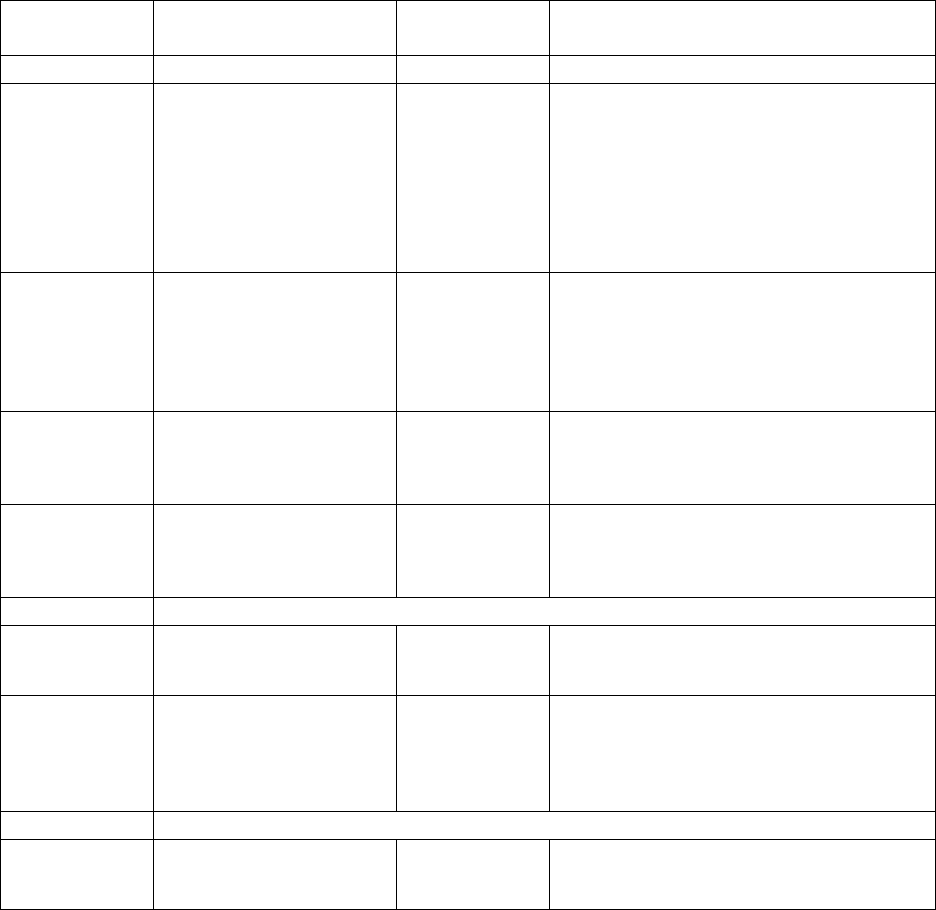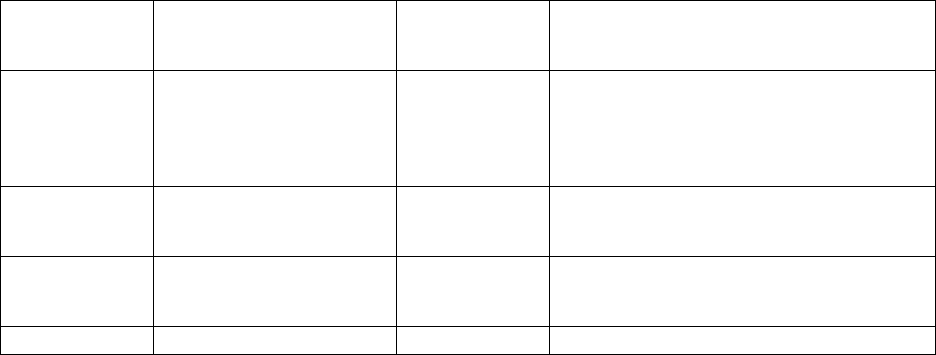
CHM 2045 Chemistry 1
Fall 2023
Welcome to CHM 2045 – Chemistry 1
This course is part of the STEM core, a set of six crical and foundaonal courses consisng of
mathemacs, chemistry, physics, programming, and STEM applicaons. These courses build the skills
and conceptual understanding you need to succeed in all degree programs. Data show that compleng
these courses in your freshman (rst) year is the cket to a high-powered STEM degree and an on-me
graduaon.
The STEM core courses, while not the same, share a similar feel and similar course policies. Moreover,
the courses strive to set consistent expectaons of what it means to take responsibility for your own
learning and how to do university-level work. The courses are designed to be fair and reasonable. They
are challenging, but they will set you up for success in your chosen degree program.
As a sign of the importance Florida Poly places on these courses, key department chairs and faculty have
come together to form a Freshman Council that collecvely manages course standards and delivery. We
recognize the enormous impact these courses have on your future academic success. Please note the
various resources that are available if you nd yourself struggling in any way. Make these courses a
priority!
Course Information
Course Number and Title: CHM 2045 Chemistry 1
Credit Hours: 3
Current Academic Term: fall 2023
Ocial Catalog Course Descripon: This course introduces the principles of chemistry and their
applicaons based upon the study of physical and chemical properes of the elements. Topics covered
in this class includes stoichiometry, atomic and molecular structure, the states of maer, chemical
bonding, thermochemistry, and gas laws.
Gordon Rule (6A-10.030): No
Prerequisites: N/A
Co-Requisite: CHM 2045L – Chemistry 1 Laboratory
Required Text: Brown, T.E.; LeMay, H.E.; Bursten, B.E.; Murphy, C.; Woodward, P.; Stoltzfus, M.E. Chemistry:
The Central Science (15th edition); Pearson: New York, NY. ISBN: 9780137542970
Equipment and Material:
• Scienc Calculator capable of scienc notaon (Texas Instruments TI-30Xa recommended)
Please note: On exams you will not be permied to use a programmable (or wi enabled)
calculator of any kind.
• Access to the course Canvas LMS website and University Email System

Communicaon: Florida Polytechnic University email is the ocial method of communicaon for the
University. Students are required to check their email frequently. The subject of your emails must start
with “CHM 2045 Secon X” followed by the topic. Failure to provide the correct subject, will result in
ignoring the email. Any email received from an address other than the one with the oridapoly.edu
domain will not be replied to. Emails will typically be answered within 24-48 hours, Monday-Friday.
Course Objecves:
At the end of this course, you should be able to:
1. Apply appropriate scienc methods (unit/dimensional analysis/vocabulary/etc.) in problem
solving exercises.
2. To enable students to interpret chemical equaons make chemical calculaons.
3. Relate atomic and molecular structure to explain chemical and physical properes of elements.
4. Understand types of chemical bonding, Lewis Structures and apply the knowledge to predict
molecular geometry of the molecules
5. Correlate basic chemistry to explore the fundamental of advanced technologies useful for real-
life problems of societal, global, environmental, and economic consequence.
6. Making students aware to understand and execute processes and methods solve the issues of
engineering required to for understanding the improving the performance.
7. Acve engagement needed for professional success through culvang collaboraon with
muldisciplinary teams-based approaches which will help to improve technical knowledge,
communicaon abilies, and leadership skills.
Course Learning Outcomes:
Students who pass CHM-1 are expected to demonstrate:
1. Ability to understand the concept of engineering systemacally based on chemistry (formula,
equaons, units, scienc vocabulary, and process).
2. Use stoichiometric methods to convert between mass, moles, and concentraon.
3. Relate the quantum numbers and electron conguraons of atoms to the periodicity in chemical
and physical properes of elements as represented in the periodic table.
4. Predict the bonding and resulng geometry of atoms in molecules.
5. Determine enthalpy change in chemical reacons-First Law of Thermodynamics.
6. Employ the kinec theory of gases and the ideal gas laws to determine pressure, volume,
temperature, and/or amount of a gas.
7. Ability to execute lecture learning to develop and conduct appropriate experiments, analyze, and
interpret data, and use engineering judgment to draw conclusions.
8. An ability to correlate the knowledge of chemistry with the improved performance emerging
smart materials, sensing, environmental safety & monitoring, and healthcare.
9. An ability to communicate eecvely with a range of audiences.
Grading Scale
Grade
A
B+
B
B-
C+
C
D
F
Percentage
90%
87%
83%
80%
77%
70%
60%
< 60%
GPA
4.0
3.33
3.0
2.67
2.33
2.0
1.0
0.0
Assignment/Evaluaon Methods
Aendance and In-class acvies 5%*
Homework: 25%

Exams (three at 15% each) 45%**
Final Exam 25%
_________________________________________
Total 100%
*Up to 2 unexcused absences are permied. Each subsequent unexcused absences will result in a 1%
penalty.
**Students may approach the instructor if they score between a 60-69% on an exam for a grade
improvement plan. Students may ulize this plan for only ONE midterm exam per semester.
Midterm Exams: Midterm exam dates will be nalized early in the semester and those
dates/mes will be posted to our Canvas course site once available. Exam dates are subject to
change and you should refer to the Academic Calendar website for the most up-to-date exam
schedules. Exam dates will also be announced in class at least one week prior to the scheduled
event.
Homework: The homework will be through Canvas and will be due each week on Sunday by
11:59 pm. The assignments will open on the Wednesday prior to the Sunday they are due.
Schedule of Topics by Week
Week
Topics
Chapter/Secons
1
Syllabus, Basic denions/concepts of maer, measurements
and units, uncertainty and signicant gures
Ch 1.1-1.3, 1.5-
1.6
2
Dimensional analysis, atomic theory, structure, atomic
symbols, isotopes NO CLASS 1/16
Ch 1.7, 2.1-2.3
3
Atomic weight, the periodic table, molecules, ions and Ionic
formulas, octet rule, polyatomic ions, naming compounds
2.4-2.8
4
Balancing chemical equaons, chemical reacons, formula
weights, percent composion, the mole concept Midterm #1
– February 3
3.1-3.4
5
Molar mass, empirical formulas, liming reactant and
reacon yields, Intro to aqueous reacons
3.4-3.7
6
Aqueous soluons, precipitaon reacons, solubility rules Net
ionic equaons, acid-base reacons, neutralizaon,
oxidaon-reducon reacons NO CLASSES 2/14
4.1-4.4
7
Molarity and soluon concentraons, diluon, traons,
energy, heat transfers, enthalpy, enthalpy of reacon
4.5-4.6, 5.1-5.4
8
Heat capacity/specic heat, Hess’s law, formaon enthalpy,
bond enthalpies, Lewis symbols and the octet rule
5.5-5.8, 8.1
9
SPRING BREAK NO CLASSES 3/6-3/10
10
Bond polarity, Lewis structures, ionic and covalent bonding,
formal charge, resonance structures, octet excepons
8.2-8.7
11
Strengths and lengths of bonds, VSPER model, molecular
polarity, covalent bonding and hybrid orbitals
8.8, 9.1-9.5
12
Mulple bonds, molecular orbitals, MO diagrams, properes
of gases, gas laws, ideal gas law
9.6-9.8, 10.1-10.2

13
Ideal gas law, volumes in reacons, gas mixtures/paral
pressures, real gases, EM radiaon, frequency and
wavelength
10.3-10.5, 10.7,
6.1
14
Atomic emission, line spectra, Bohr model, uncertainty
principle, quantum theory, atomic orbitals Midterm #3 –
April 14
6.1-6.4
15
Electronic structure of atoms, quantum numbers and electron
conguraons, eecve nuclear charge
6.5-6.9, 7.1
16
Periodic table trends – atomic size, ionizaon energy and
electron anity, electronegavity Reading Days-NO CLASS
4/27-4/28
7.2-7.4
17
Finals Week
CHM 2045L Chemistry 1 Laboratory
Fall 2023
Welcome to CHM 2045L – Chemistry 1 Laboratory
This course is part of the STEM core, a set of six crical and foundaonal courses consisng of
mathemacs, chemistry, physics, programming, and STEM applicaons. These courses build the skills
and conceptual understanding you need to succeed in all degree programs. Data show that compleng
these courses in your freshman (rst) year is the cket to a high-powered STEM degree and an on-me
graduaon.
The STEM core courses, while not the same, share a similar feel and similar course policies. Moreover,
the courses strive to set consistent expectaons of what it means to take responsibility for your own
learning and how to do university-level work. The courses are designed to be fair and reasonable. They
are challenging, but they will set you up for success in your chosen degree program.
As a sign of the importance Florida Poly places on these courses, key department chairs and faculty have
come together to form a Freshman Council that collecvely manages course standards and delivery. We
recognize the enormous impact these courses have on your future academic success. Please note the
various resources that are available if you nd yourself struggling in any way. Make these courses a
priority!
Course Information
Course Number and Title: CHM 2045L Chemistry 1 Lab
Meeng me:
Credit Hours: 1
Current Academic Term: Fall 2023
Ocial Catalog Course Descripon: Students will parcipate in laboratory experiments designed to
reect the topics presented in CHM 2045.
Gordon Rule (6A-10.030): Yes: This course meets communicaon/wring-intensive requirements (W)
Co-Requisite: CHM 2045 – Chemistry 1
Required Lab Manual:

Chemistry 2045L Chemistry Lab Manual, Publisher: Xanedu, Code for manual available from the Florida
Polytechnic Online Bookstore (hps://oridapoly.edu/bookstore/index.php).
***Each week you must print the pre-lab assignment sheets, datasheets, and post-lab sheets for the
correct experiment from the manual. ***
Equipment and Material:
• Safety goggles, lab coat, and gloves (University provided)
• Scienc Calculator capable of scienc notaon
(Texas Instruments TI-30Xa recommended)
• Access to the course Canvas LMS website and University Email System
• Access to the lab manual (through the bookstore)
Communicaon: Florida Polytechnic University email is the ocial method of communicaon for the
University. Students are required to check their email frequently. The subject of your emails must start
with “CHM 2045L Secon X” followed by the topic. Failure to provide the correct subject, will result in
ignoring the email. Any email received from an address other than the one with the oridapoly.edu
domain will not be replied to. Emails will typically be answered within 24-48 hours, Monday-Friday.
Course Objecves:
1. Design and perform a chemistry experiment safely and systemacally.
2. Understanding and follow laboratory work pracces.
3. Demonstrate ability to generate systemac data.
4. Achieve professional success to analyze an experimental data correctly.
5. Achieve ability to arculate laboratory report based experimental outcomes using professional
English, technical details, and sciencal explanaon.
Course Learning Outcomes:
1. Ability to understand the process of a chemical change.
2. Ability to demonstrate safe laboratory skills.
3. Learning-based ability to apply problem solving skills to perform any experiment which involve
processing.
4. Ability to engage construcvely and work in a team.
5. Ability to communicate and arculate a laboratory process report.
6. Ability to ulize scienc methodology including quantave data analysis and interpretaon.
7. An ability to develop and conduct appropriate experimentaon, analyze, and interpret data, and
use engineering judgment to draw conclusions.
8. An ability to execute process-based learning to improve engineering processes involving surface
science, materials science, analycs science, environmental science, and technology of sensors
and biomedical applicaons.
Grading Scale
Grade
A
B+
B
B-
C+
C
D
F
Percentage
90%
87%
83%
80%
77%
70%
60%
< 60%
GPA
4.0
3.33
3.0
2.67
2.33
2.0
1.0
0.0
Assignment/Evaluaon Methods

Aendance 5%*
Lab Experiments (Best 6 of 7, 7% each) 45%**
Full Lab Reports (2 at 15% each) 30%**
Final Exam 20%
___________________________________________
Total 100%
*See Aendance Policy below
**See Lab Experiments and Reports secon below
Schedule of Topics by Week
Week
Title of Experiment
Lab # in
Manual
Assignment
(due at the beginning of class)
1
Syllabus and check in
*Get access to the online lab manual
2
Mandatory Safety
Training and Online Quiz
Exp 0
-Complete: Online Safety Training and
Safety Quiz prior to the start of Week 2
***Students may not work in the
laboratory unl they have viewed the
Lab Safety video and passed (≥80%) the
Safety Quiz***
3
Glassware and
Uncertainty
Not in manual
(Worksheet
posted on
Canvas)
-Bring the Signed copy of the Lab Safety
agreement and submit in person (hard
copy)
-Submit the pre-lab work for Glassware
and uncertainty
4
Identifying Materials by
Density
Experiment 1
-Submit Data/post lab –for Glassware
and uncertainty
-Submit the pre-lab work for Exp. 1
5
Determining the Limiting
Reagent and Theoretical
Yield (Full lab report due
for this expt)
Experiment 3
Part A
-Submit Data/post lab work –Exp. 1
-Submit the pre-lab work Exp. 3
6
No Labs this Week
7
Limiting Reagent Lab
(Full lab report due for
this expt)
Experiment 3
Part B
8
Stoichiometry Concept
Discussion and Making
a Stock Solution
(Dilution concept)
Experiment 5
-Submit Full lab Report and
corresponding Data Sheets for
Experiment 3
-Submit the pre-lab work Exp. 5
9
No Labs this Week – Spring Break
10
Acid-base Titration 1
(Full lab report due for
this expt)
Experiment 6
Part A
-Submit Data/post lab work–Exp. 5
-Submit the pre-lab work Exp. 6

11
Acid-base Titration 2
(Full lab report due for
this expt)
Experiment 6
Part B
12
Determination of the
Enthalpy of Combustion:
Magnesium
Experiment 9
-Submit Full lab Report and
corresponding Data sheets for
Experiment 6
-Submit the pre-lab work Exp. 9
13
VSEPR Theory
Experiment 8
-Submit Data/post lab work – Exp 9
-Submit the pre-lab work Exp. 8
14
Calculating the Molar
Volume of Carbon
Dioxide
Experiment 4
-Submit Data/post lab work – Exp. 8
-Submit the pre-lab work Exp.4
15
Final Exam for Lab
-Submit Data/post lab work – Exp. 4
